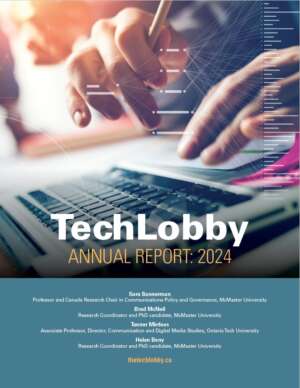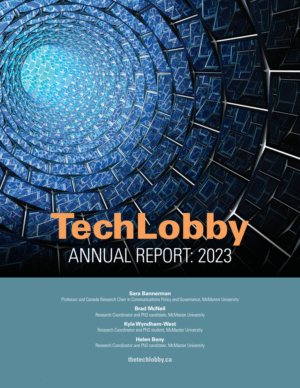Google (Alphabet) is one of the world’s most powerful corporations. According to the Forbes 2000 list, at the end of 2023, Google was the 10th largest publicly traded corporation in the world, with sales of $317.9 billion, profits of $82.4 billion, assets of $407.4 billion and total market value of $2,177.7 billion. From 2001 to 2023, Google grew through mergers and acquisitions, taking over 257 companies. At present, its market share is multi-faceted and massive (91.62% of global search engine, 65.3% of browser, and 39% of global digital adspend) and its trove of IP is vast (111911 patents). At Google’s commanding heights are some of the wealthiest people in the world: Larry Page is the world’s twelfth richest person (net worth: $79.2 billion) and Sergey Brin is the 14th (net worth: $76 billion). CEO Sundar Pichai’s salary was $226 million in 2022. Google’s power is primarily based its ownership of capital, but its power extends to the politics of digital policy-making.
Around the world, governments possess the public authority to develop, preserve or transform the general policy and regulatory rules of society, and Google allocates a portion of its wealth to trying to influence these. For example, Google’s Government Affairs and Public Policy (GAPP) agency “interacts with government and elected officials to explain its products and advocate for policies” (Google 2024a). Mark Isakowitz (a former chief of staff to Senator Rob Portman) is Google’s head of GAPP in the North America. Karan Bhatia (a former senior official in the Bush Administration) steers GAPP’s global presence, interacting with states and policy-makers worldwide. Google is also a paid member of many business advocacy groups that play a role in shaping digital policy, such as the U.S. Chamber of Commerce, The Information Technology Industry Council (ITI), and, the Computer & Communications Industry Association (CCIA). Through its internal agencies and external trade associations, Google is a powerful policy actor with a stake in shaping the public governance of the communications and digital media industries, from telecommunications to broadcasting to the Internet and social media to Artificial Intelligence (AI). Google also lobbies against and for public legislation that impacts its business interests, and in 2022, it spent $13 million derailing anti-trust bills intended to disrupt its Internet oligopoly (Ratanpal and Sayki, 2023). Google’s political reach extends beyond the overt communications and digital policy domain: in 2023, it lobbied fifty two bills covering public policies pertaining defense, national security, trade, energy, infrastructure, labor, health, and more (OpenSecrets 2024).
Beyond its routine engagement with Congress, Google actively supports its favored political parties and candidates, aiming to influence election outcomes at federal, state, and municipal levels of government. Established in 2006, Google NetPAC is the corporation’s political action committee (PAC). “NetPAC allows Google employees, through their personal funds, to join together and support candidates who share Google’s positions on important issues” and the “NetPAC board bases its giving decisions on a number of factors, most importantly, the policy stances of individual candidates, committees, and organizations” that are important to Google (Google 2024a, para 5). In 2022, Google donated $8.78 million to Democrats, and $1.13 million to the Republicans, and as of February 2024, it had donated $2.55 million to the Blue and $494 thousand to the Red (OpenSecrets 2024). To gain tax breaks and win favor in civil society, Google’s charitable arm Google.org donates hundreds of millions of dollars each year to approximately 350 politically-engaged non-profit associations, independent third-party organizations and other charities (Google 2024b). Many of the beneficiaries of Google’s expenditures are local chambers of commerce and business advocates (e.g., Sunnyvale Chamber of Commerce, Missouri Chamber of Commerce, and US Black Chambers Inc.), but to build its corporate social responsibility (CSR) brand, Google also spends on social advocacy groups such as the Independent Women’s Forum, the National Black Justice Coalition, National Center for Transgender Equality, the LGBTQ Victory Institute, and the National Congress of American Indians (Google 2024b). Additionally, Google leverages the labor of knowledge workers to support its policy ideas by donating to think tanks, from the liberal Left (e.g., the Aspen Institute, the Brookings Institution) to conservative Right (e.g., American Enterprise Institute, The CATO Institute) (Google 2024b).
Through its internal policy agencies, external trade associations, lobbyists, NetPAC, affiliated civic groups and think-tanks, Google advances its broad policy interests to publics, legislators, parties, politicians, and even presidents to try to ensure public policy will sync with its preferences. While Google is not Government, its lobbying capacities for trying to shape policy—digital and otherwise—are vast. But is Google’s lobby a public policy-maker? 20th century political theorists of policy would likely say “no.” A liberal pluralist theorist might construe Google as one of many diverse interest groups vying for influence in a marketplace of policy ideas, competing to persuade officials that its ideas are most beneficial for society while being counter-balanced by other groups seeking to exert similar influence, and settling for whatever “compromise” that results. A power elite theorist would likely view Google, along with its Board of Directors and CEOs, as part of tiny group of corporate, military and political elites that possess the power to make the most consequential decisions about society’s overall policy framework, without the public’s participation or consent. In the Marxist state theory tradition, instrumentalists would see Google as capturing and using government policy as tool for sustaining its profits via the exploitation of workers; relative autonomists would concede that Google exercises influence within state agencies, but emphasize their partial autonomy to establish and enforce policies that while not always of direct benefit to Google, are integral to reproducing the capitalist system. Liberal pluralist policy analysts, sociologists of power elites, and Marxist political economists would likely concur that while Google is a policy influencer, it is not a public policy maker. Government, not Google, is the ultimate authoritative policy-maker, possessing the mandate to safeguard the public interest through its policy and regulatory agencies and practices.
However, the idea that government is the sole policy-maker overlooks a social fact of today’s communications and digital media environment: corporations like Google have become significant private digital policy-makers in their own right. In addition to shaping public policy through its lobby, Google actively designs and enforces its own private policies upon people through the digital services it owns—Google Search Engine, YouTube, Gmail, Google Maps, Google Drive, Google Docs, Google Photos, Android, and the Google Play Store. Google’s digital policy is not publicly made, but serves as a de facto private means of governing the conduct of the more than five billion people logged into and using its apps and sites, platforms, and devices to search, navigate, email, schedule, collaborate, analyze, store, share, video call, stream, blog, listen, view, read, advertise, translate, and learn each day. All corporations that own digital services impose rules upon the agency and communications of the people who use them and Google is no exception (Gillespie 2018). Consider Google’s “Terms of Service,” which positions its service users as subjects of its authority (Google, 2024d): “these Terms of Service help define Google’s relationship with you as you interact with our services” and outline “What we expect from you”, including “certain rules for using our services.” Google declares that “Understanding these terms is important because, by using our services, you’re agreeing to these terms.” Google’s Terms dictate the relationship between the corporation and its service users, stipulates users must conduct themselves in compliance with the law, conveys prescriptive communicative norms and codes, and outlines what it may do to users, and how it uses their content and their data for its own ends (Google, 2024d). Google’s Terms have a global reach, stretching beyond its headquarters in Mountain View California across the territorial borders and communication and digital media systems of numerous countries, including Canada. They exemplify how alongside the state’s public digital policy and enforcement exists capital’s private digital policy-making and regulation.
In sum, Google (and perhaps all big tech corporations) are both public policy-shapers and private policy-makers. As a corporation, Google is primarily focused on pursuing profit maximization and paying dividends to its shareholders within the economic sphere, but its public and private digital policies and practices extend far beyond digital markets, infiltrating and impacting all spheres of social life, including the state. Google’s public and private roles in digital policy-shaping and policy-making underscore the importance of broadening digital policy studies in Canada. This shift moves beyond a focus on policies solely created by public departments of the Canadian federal government to include those developed within the private boardrooms of major tech corporations like Google. It also highlights the public interest value of The Tech Lobby Project (Thetechlobby.ca), which examines the private power and influence of big tech companies like Google on Canadian public communication policy frameworks and across online platforms.
References
Gillespie, Tarleton (2018). Custodians of the Internet: platforms, content moderation and the hidden decisions that shape social media. New Haven, CT: Yale University Press.
Google (2024a). GAPP Transparency Page. URL: https://www.google.com/publicpolicy/transparency/ [February 6, 2024].
Google (2024b). Trade Associations and Membership Organizations. URL: https://kstatic.googleusercontent.com/files/ddfc97f01d89290e37bc52abdd9704bc3314ec5598bebe9676c64cd7a5ba1a719acaf069c1f9c218986e507f58bf3b50c750119c778cb4e88e99f3fb4dd904b4 [February 6, 2024].
Google (2024c). Our Mission. URL: https://www.google.org/ [February 6, 2024].
Google (2024d). Google Privacy & Terms. URL: https://policies.google.com/?hl=en [February 6, 2024].
Open Secrets (2024). Alphabet. URL: https://www.opensecrets.org/orgs/alphabet-inc/lobbying?id=d000067823 [February 6, 2024].
Ratanpal, Harshawn, and Sayki, Inci (2023, January 30). Google continued to ramp up federal lobbying spending before DOJ filed second antitrust lawsuit. OpenSecrets. URL: https://www.opensecrets.org/news/2023/01/google-continued-to-ramp-up-federal-lobbying-spending-before-doj-filed-second-antitrust-lawsuit/ [January 30, 2023].
YouTube (2024). Rules and Policies: Community Guidelines. URL: https://www.youtube.com/intl/ALL_ca/howyoutubeworks/policies/community-guidelines/ [February 6, 2024].
Tanner Mirrlees is an Associate Professor in the Communication and Digital Media Studies program at Ontario Tech University. Mirrlees is a member of the Tech Lobby Project and author of Work in the Digital Media and Entertainment Industries: A Critical Introduction (Routledge, 2024) and co-author of EdTech Inc.: Selling, Automating and Globalizing Higher Education in the Digital Age (Routledge, 2019).






